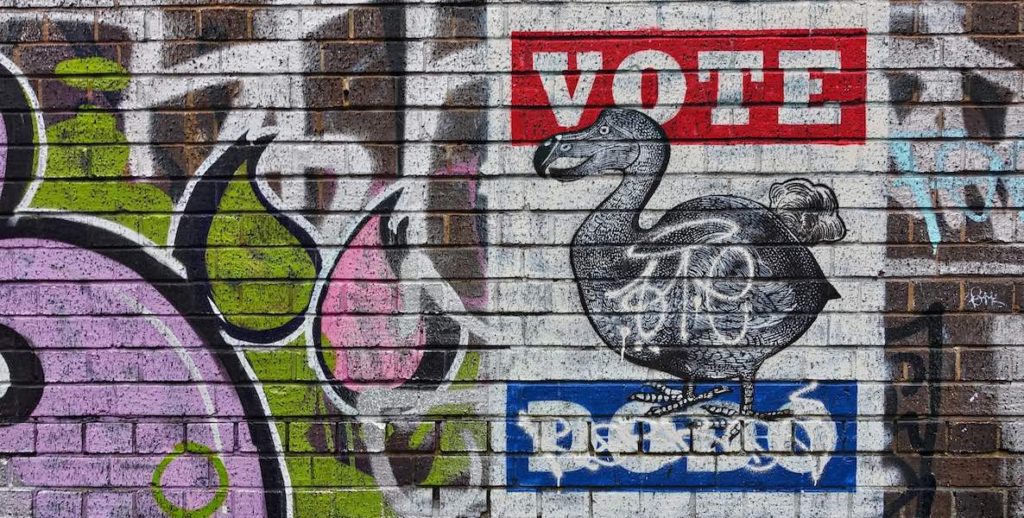In November 2015, South Philly crossing guard Bridget Conroy-Varnis, a lifelong Philadelphian, did what she always does on Election Day: She voted. And for that simple, but important, act of citizenship, she got more than just the reward of patriotism. She also won $10,000 in the first ever Citizen voter lottery.
On May 16th, during this year’s primary for District Attorney and City Controller (among other races), The Citizen will reward another randomly-selected voter $5,000 for casting a ballot. We’ll give another $5,000—both courtesy of the Pamela + Ajay Raju Foundation—in November, during the general election. (Radio station WURD is partnering with The Citizen on the lottery this year).
We know what some of you will say, because you said it last time we did this. “Let’s call it what is is: a bribe,” wrote Patrick Kerkstra, then of phillymag.com. “And not even a big one. It’s crass, it’s insulting.”
“I am disgusted and embarrassed to have this associated with our city,” Shannon Wink, from BillyPenn, said on Twitter.
To which we say: Well, yes. But let’s look at the realities of voting in this city. In the last Mayoral election, just 25 percent of registered voters came out to the polls to decide who would run this city for (probably) the next eight years. And that was a big local race, which included all of the City Council seats, as well. In 2013, the last time there was a race for District Attorney, just 11.4 percent of eligible Philadelphians voted—in an election that gave us the second term of now-disgraced Seth Williams.
Among the 30 percent of the electorate who knew of our voting lottery, turnout was up five percent. If every voter in the city had known about it, that would have amounted to 50,000 additional votes cast in the election—enough (as we saw with the Presidential race) to sway an election.
Nationally, it’s the same story: Turnout in the last non-presidential federal election in 2014 was just 36 percent—the lowest since World War II (when thousands of voters were otherwise occupied keeping the world safe for, well, democracy). If you still don’t think numbers matter, remember what happened this past November, when Hillary Clinton lost Pennsylvania by just 46,000 votes out of more than 5 million cast. In that race, 64 percent of eligible Philadelphians voted, less than in both 2008 and 2012. Imagine what could have been if every single Philadelphian had cast a vote for President in November. That’s right, just imagine it.
What we learned the first time we did this was something we didn’t necessarily expect: Among the 30 percent of the electorate who knew of our voting lottery, turnout was up five percent. If every voter in the city had known about it, that would have amounted to 50,000 additional votes cast in the election—enough (as we saw with the Presidential race) to sway an election.
Look, we’re not saying that this is the solution to our voting woes. We don’t even think it’s the best solution. Democracy should be its own reward; but our democracy is failing. It is failing because we don’t use it. That’s why, tomorrow, we’re going to publish The Citizen Election Reform Guide, presenting systemic solutions beyond the lottery to increase turnout. It will include many of the ideas we’ve written about at The Citizen. Among them:
- Ranked choice voting,which would have kept Donald Trump from winning the Republican nomination.
- Lowering the voting age, which instills the lifelong habit of voting in newly-mature citizens.
- Open primary voting, which would let even Independents (a growing segment of the population) cast a vote in the primary.
- An end to gerrymandering, which no sane democracy would allow.
- Contested elections. Are you a Republican facing a May primary with hardly anyone on the ballot? Then you know what we mean.
These, and many other ideas, are real long-term solutions to the problems that dampen our voter turnout. And they are solutions all of us who care about Philadelphia—and care about America—should work hard to enact. Join Fair Districts PA, which has started a movement to fix our redistricting problems. Run for office so you provide the contest in the next election. Call on our elected officials to change our system of voting so it is easier for everyone to cast a ballot. Voting should not be hard, or threatened, or manipulated. It should be as easy as that walk to the polling place just a few blocks away.
Most of all, do like Conroy-Varnis, and get out to the polls yourself—not because you might win a prize, but because it is your duty and your privilege as an American.
“Every election I try to get out,” Conroy-Varnis told us when she won her $10,000 prize. “That’s how I was brought up. Every vote counts, so do your civic duty.”
For rules and regulations about the lottery, go here.

